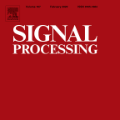Adaptive filters are at the core of many signal processing applications, ranging from acoustic noise supression to echo cancelation, array beamforming, channel equalization, to more recent sensor network applications in surveillance, target localization, and tracking. A trending approach in this direction is to recur to in-network distributed processing in which individual nodes implement adaptation rules and diffuse their estimation to the network. When the a priori knowledge about the filtering scenario is limited or imprecise, selecting the most adequate filter structure and adjusting its parameters becomes a challenging task, and erroneous choices can lead to inadequate performance. To address this difficulty, one useful approach is to rely on combinations of adaptive structures. The combination of adaptive filters exploits to some extent the same divide and conquer principle that has also been successfully exploited by the machine-learning community (e.g., in bagging or boosting). In particular, the problem of combining the outputs of several learning algorithms (mixture of experts) has been studied in the computational learning field under a different perspective: rather than studying the expected performance of the mixture, deterministic bounds are derived that apply to individual sequences and, therefore, reflect worst-case scenarios. These bounds require assumptions different from the ones typically used in adaptive filtering, which is the emphasis of this overview article. We review the key ideas and principles behind these combination schemes, with emphasis on design rules. We also illustrate their performance with a variety of examples.
翻译:适应过滤器是许多信号处理应用程序的核心,从声响响应变到回声取消、阵列波束成形、通道均衡,到监测、目标本地化和跟踪等较近的传感器网络应用程序。这个方向的一个趋势方法是反复出现到网络内分布式处理,其中每个节点执行适应规则,并将估计结果分散到网络中。当关于过滤情景的先验知识有限或不精确时,选择最适当的过滤结构并调整其参数成为一项艰巨的任务,错误的选择可能导致业绩不佳。为了解决这一困难,一个有用的办法是依靠适应结构的组合。适应过滤器的结合在某种程度上利用了机器学习界成功利用的相同差距和征服原则(例如,在整合或提升中)。 特别是,在计算学领域以不同角度研究几种学习算法(专家组合)的产出问题:我们不研究混合物的预期性能,确定性界限是用来对单个序列和过滤方法加以调整的组合。因此,我们对这些关键设计规则进行了不同的分析,这些分析需要以最差的框框框框。




